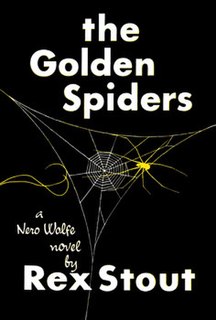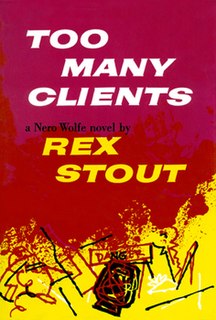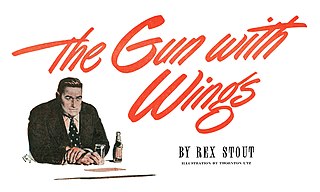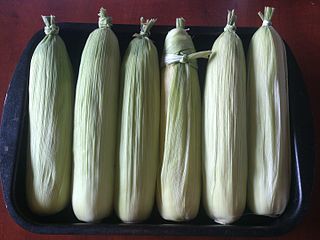Plot summary
There wouldn't have been the slightest excuse for my missing the exact spot for a dead kidney punch, and I didn't. Air exploded out of him, and he crumpled, not sprawling, but in a compact heap. Then he sort of settled to get comfortable.
His attractive wife took a couple of steps toward him, stopped to look at me, and said, "I'll be damned."
"You will if they consult me," I told her emphatically.—
Archie Goodwin, irked by a sucker punch, in Chapter 4 of When a Man Murders
Sidney Karnow has returned from the dead. In 1951 he enlisted in the Army and was sent to Korea as a soldier in the infantry. Injured in battle, he was left for dead by retreating American forces, but in fact was only stunned. Karnow was taken prisoner by the enemy, but after a couple of years he escaped to Manchuria and lived there in a village until the truce. Then he made his way to South Korea and was sent home by the Army.
Unusual enough by itself, but Karnow was also a millionaire. He had inherited money from his parents but felt that he should serve in the military. Before enlisting, he had met and married Caroline, who now calls on Wolfe along with her new husband, Paul Aubry. Caroline and Paul are in a terrible spot: Karnow's return from the dead apparently voids their marriage, and they have spent a large portion of Caroline's inheritance to set Paul up in business as a car dealer. They have decided to offer what is left of the inheritance, plus the dealership, to Karnow in return for his consent to a divorce.
Paul has gone to Karnow's hotel room to put the proposition to him, but got cold feet before knocking on the door. He discusses the situation once again with Caroline, and they decide to come to Wolfe for help. Wolfe explains that he is a detective, not a lawyer, but Aubry replies that "We want you to detect a way of getting Karnow to accept our proposition."
Ignoring Aubry's diction, Wolfe sends Archie, along with Aubry and Caroline, to the Hotel Churchill to put the proposition to Karnow. Archie leaves the clients in the bar and goes upstairs to Karnow's room, gets no answer to his knock, tries the doorknob and finds it unlocked. When he enters, he finds Karnow, shot dead, and a gun lying a few feet away. Archie leaves the room as he found it, collects the clients and returns to the brownstone, where Purley Stebbins soon shows up. Archie, Paul and Caroline were seen at the hotel where Karnow's body was just found.
Stebbins takes Paul and Caroline for questioning (although Wolfe and Archie insist that he do so from the sidewalk: Wolfe will not tolerate a client, even a potential client, being taken into custody inside his house). Archie follows shortly thereafter, and as he is waiting to meet with the DA, he encounters Caroline's in-laws: Karnow's Aunt Margaret, cousins Anne and Richard, and Anne's husband Norman Horne. With them is Jim Beebe, Sidney's lawyer and executor. Archie learns nothing from them except that Anne Horne has a facetious sense of humor.
Archie has no information for ADA Mandelbaum and Inspector Cramer, and shortly after he returns home Caroline rings the doorbell. She brings the news that the police have arrested Paul for Karnow's murder, and she wants to hire Wolfe to clear him. Wolfe accepts, but needs to knows more about Karnow's relatives. They had received bequests in Karnow's will, stood to lose those bequests when he turned up alive, and therefore had motive. Caroline knows little about them except that they had always depended on Karnow's support, and have not managed their inheritances prudently. Wolfe sends Archie to bring them to the office.
Archie tries Beebe first but can't corral him, and has no better luck with Karnow's Aunt Margaret and his cousin Richard. When he calls on cousin Anne, he gets more of her persiflage. Trying to draw her out, he lets her read his palm – and then her husband Norman returns to their apartment. Anne slows Archie down just enough that Norman, unencumbered, can clip Archie in the jaw. Then Archie decks Norman, and leaves.
Finally Wolfe hears from Saul Panzer, who has been investigating a different side of the problem. Wolfe has Archie phone Inspector Cramer, and gives him the choice of bringing all involved to Wolfe's office, or declining to cooperate and letting Wolfe work through the DA's office. Cramer chooses the former option. In the traditional meeting with the suspects in Wolfe's office, Wolfe makes public what Saul has turned up: an unwitting but crucial witness to the motive for Karnow's murder.






















